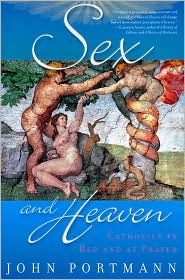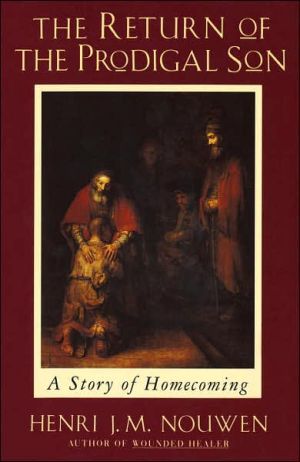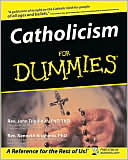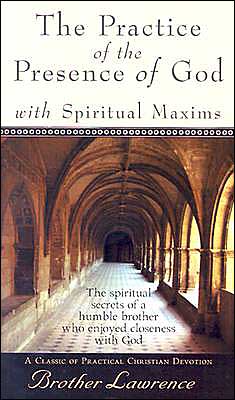Sex and Heaven: Catholics in Bed and at Prayer
"This book examines the celestial admissions policies of Judaism, Christianity, and Islam. The twentieth century transformed standards remarkably. After nearly two thousand years of division, for example, the Roman Catholic Church admitted Jews into heaven in 1964. The Vatican now vigorously encourages Jews to take pride in their faith, even as the Vatican encourages homosexuals to feel ashamed of themselves. Although the Vatican has not explicitly condemned gays and lesbians to hell, the...
Search in google:
What does it take to get into heaven? If you're Roman Catholic, Portmann argues, the red-hot issue is sex.Since the late 1980s, the Vatican has made great efforts to encourage Jews to celebrate their faith, yet continues to reject homosexual Catholics. Portmann, himself a Catholic, finds it striking that the Vatican says Jews can "get to heaven" by being Jewish but strongly implies that even monogamous gay and lesbian Catholics cannot. Portmann concludes that, in the Church's eyes, sexuality now trumps theology. Focusing on Catholicism, Sex and Heaven also raises compelling questions about heaven in Protestantism, Judaism, and Islam. This original and powerful perspective is sure to startle and amaze. Publishers Weekly The Catholic Church's public image as a spoiler of fun in the bedroom is the subject of this pointed critique of the church's teachings on human sexuality. Portmann, an author (In Defense of Sin) and religion teacher at the University of Virginia, believes the church has made correct sexual behavior a kind of ticket to heaven. He disagrees with the price of admission, particularly when it comes to homosexuality, and likens the church's teachings on sexual purity to various strictures that have fallen by the wayside, such as those against lending money at interest and eating meat on Fridays. He also suggests-in a rather obtuse comparison-that since the church has changed its view of Jews and their salvation in recent years, now allowing for the possibility that they will be admitted to heaven, it should also consider lifting its ban on homosexual sex. Finally, he warns that the church has made its views on sex so pre-eminent as to risk losing its "salvific reach and transcendental purpose." Portmann supports his stance with numerous citations, but his case is weakened by the fact that he fails to deal directly with the church's many documents on human sexuality, which present sex in both an earthly and heavenly context. This trenchant study will appeal to those demanding changes in church teachings on human sexuality, but not to readers who see the Catholic view of sex as rooted in Christian orthodoxy. (Mar. 26) Copyright 2003 Reed Business Information.
Sex and Heaven\ Catholics in Bed and at Prayer \ \ By John Portmann \ palgrave macmillan\ Copyright © 2003 John Portmann\ All right reserved.\ ISBN: 0312294883 \ \ \ \ Chapter One\ \ \ \ Across so many stormy seas! Life isn't easy, not even for those born healthy and beautiful into loving, affluent families. So many problems can beset us from year to year that worry may seem a natural state of mind. What will happen tomorrow? Will things get better? How could they get worse?\ For nearly two thousand years, downtrodden Christians have steeled themselves to the slings and arrows of fortune by contemplating heaven. In heaven, God will reward us lavishly for having behaved well in spite of hardship. Throughout eternity, we will savor a gift beyond any pleasure found in this fleeting world. Because celestial bliss will vastly exceed earthly suffering, we need not dwell on today's problems. Heaven heals all wounds.\ Following the September 11, 2001 terrorist attacks on the Pentagon and the World Trade Center, the media pumped into living rooms around the globe reports that those radical Muslims who had sacrificed their lives that day counted on immediate entrance into heaven. In fact, it was the promise of heaven that motivated their attacks. Americans initially struggled to understand how evildoers could bomb their way into paradise, but perhaps remembered that heaven is a contested territory.\ Although Muslims and Christians disagree on what heaven will look like, they share an abiding sense that it rewards devotion to God. Protestants, particularly in the United States, have leaned on hell in order to reinforce a notion of heaven as the ultimate payoff for good behavior. Sermons such as Jonathan Edwards's classic "Sinners in the Hands of an Angry God" serve up a fire-and-brimstone warning about Hades, thus doubling our motivation to get to heaven. And the steady diet of saint stories that nourishes many Catholic schoolchildren relies on the same link between righteousness and heaven. As a heroic nun or priest expires in these stories, admirers crowd around the likely saint's body and report basking in bright rays from above. In 1958, for example, the newspaper L'Osservatore Romano described the funeral of Pope Plus XII as the greatest Rome had ever witnessed-more magnificent even than that of Julius Caesar. "Inferring that Pacelli [Pope Plus XII] was already enjoying the beatific vision, the Pope's secretary for briefs, Monsignor Antonio Bacci, said in his eulogy: 'With his death a great light went out on earth, and a new star lit in heaven.'" Writers with a religious audience in mind learn early on that arrival in heaven makes for the most dramatic ending of all.\ Early Christians didn't spend much time musing about what heaven would be like because they kept thinking that Christ would return tomorrow. They would find out soon enough. Not surprisingly, the New Testament comes up short on heavenly details. Subsequent Christian thinkers have devoted a bit more time to pondering the afterlife. They have argued over what heaven is like and what it means. Saint Thomas Aquinas maintained that heaven is not so much a reward as the very end for which human beings were created. Before him, Augustine had claimed that, as an embodied intellect, our very purpose is to return to the contemplation of God in a resurrected body. (This is what Augustine means when he says we are capax Dei). Since Augustine's teaching on the city of God, Latin theologians have regularly denied that every visible member of the Catholic Church is bound for heaven, just as they have regularly allowed that some who appear to be ex-members or even nonmembers may end up in heaven. Although Catholic teachers working in the trenches may suggest otherwise, church membership is not a prerequisite for gaining heaven. Technically speaking, anyone can get there. Who knew?\ So why bother to obey Catholic rules if anyone can make it to the top? As it turns out, Catholics have been less than entirely generous in admitting foreign souls into paradise (or at least canonizing them as saints). This may be an unfair way of putting the matter; there are rules to follow and conditions to meet if one is to pass the final judgment. Those who fail will find the doors of heaven barred to them. This is the cold, hard truth. Or is it? In this age of affirmative action, we moderns labor to extend equal opportunities to those who have rarely enjoyed the advantages and privileges that sweeten our short stay in this world. Here in this life, we continue to struggle to make human society more just. Who will take up the challenge of democratizing heaven? Of goading Christians, Jews, and Muslims to admit anyone into their preferred corner of eternity?\ That is the organizing question of the next chapter. Here I want to probe the grand prize of existence-not sex, as the media would have us believe, but heaven.\ \ \ Christianity remains a major cultural force around the globe. Christians constitute the clear majority in America, and the United States ranks as the most demonstrably religious country in the West. According to a 1996 Gallup poll, 96 percent of American adults believe in God, 90 percent in heaven, 79 percent in miracles, and 72 percent in angels. These figures will likely remain constant for at least another generation.\ Both within and across religious traditions, the faithful in the modern West disagree on virtually every aspect of the supernatural and morality. In an effort to avoid tediousness and at the risk of miffing specialists, I will ignore many details of this disagreement. Heaven shouldn't ever bore us.\ And despite Chateaubriand's reasonable worry about boredom in paradise-"No one is interested in beings who are perfectly happy"-enthusiasm for heaven endures. Most Christians, particularly those on a deathbed, will allow their imaginations to run wild when it comes to paradise. Saint Paul encourages such reveries even as he assures us of their futility: "Eye has not seen, nor ear heard the things that God has prepared for those who love him." For many Christians, all of earthly life is a test, a trial to see whether one will get to heaven.\ Even today, Catholics wear sacred medals, set out on pilgrimages, recite novenas, and diligently stockpile indulgences, all in the name of getting to heaven. Since the start of the Christian era, countless books and legends have pondered the mystery of the afterlife. Heaven steeped Christian sensibility with the logic that temporary acts carry eternal consequences. Reverence for rules came to absorb much of the sense of duty contained in Jewish attitudes toward mitzvot, or good deeds.\ Two rival visions of the ultimate goal pit Eden, the earthly paradise, against the sky, a celestial paradise. Christians have generally endorsed the latter. Spatially and literally, Christians refer to heaven as up. The sky is where, for example, Catholics believe the Ascension took Christ, and where the Assumption later delivered his mother. Myriad paintings present angels swooping down to the earth from out of the sky. The Christian version of heaven, to the extent it can be considered uniform, contrasts with earlier versions of a euphoric afterlife, such as the Elysian fields and ancient Egyptian paradise.\ Christian theology borrowed extensively from its Jewish parent, which is hardly surprising given that Christianity began as a Jewish sect. But heaven really only surfaced in later Judaism, a religion that seems to show much less sustained interest in the afterlife than Christianity. Christianity deliberately spiritualized a realm for which many Jews saw a largely practical significance. For example, according to Jewish scholar Daniel Jeremy Silver, "Rabbinic Judaism never let go of redemption as a purely political category. 'There is no difference between this world and the World to Come except the end of our political subjugation.'"\ A number of Jewish writers, in any event, have woven heaven into their fiction. In "Yom Kippur," Eliezer Rosenthal depicts an Orthodox Jewish man wracked with guilt over having stolen money from a rabbi in order to finance a daughter's wedding. Pondering the humiliation he'd feel upon admitting his deed, the character Betel thinks, "I risk my world to come." Later, "He pictures how his soul flew up to heaven while he slept, and entered everything in the eternal book...." Realizing that his time is running out, Berel assures himself "that the door of heaven will stand open a little while longer, his repentance may yet pass through...." And Steve Stern's short story "Lazar Malkin Enters Heaven," like Bernard Malamud's "Angel Levine," details a visit from the angel of death to an old man who simply refuses to die. Perhaps most notably of all, Isaac Bashevis Singer, the 1978 Nobel laureate in literature, peppered his stories with references to heaven. That they do not think of it in Christian terms does not mean that Jews disallow heaven. That they may not dwell on heaven does not mean that Jews disavow it.\ Although we read about heaven in the New Testament, we do not find a single, coherent account of it there. We find the most useful sources in the early Christian moralist Tertullian (circa 162-224) and in Augustine's City of God. Dante's Paradiso continues to mold popular imagination, seven centuries after its publication.\ Tertullian emphasized the bodily aspect of resurrection that remains central to Roman Catholic belief. Due to a fervent belief in the resurrection of the body (and therefore in its sanctity), Christians only cremated their dead in extraordinary circumstances, such as battle or plague. Although Protestants generally allowed cremation after the Reformation, Catholics continued to eschew the practice until it was formally permitted in 1963 by Pope John XXIII. It is no accident that medieval paintings of heaven feature people with bodies; on the contrary, this fact is highly significant and reflects submission to Catholic theology. For better or worse, in heaven we get back the body we had in this world-with some improvements. Children and fetuses rise perfected, and amputees find their limbs restored. According to Augustine, men will rise as men, women as women. Black people will still be black in heaven, and the tall will still be tall. Curiously, there should be no difference between straight people and gay people, because there is no sexual desire in heaven. Gay identity, to the extent that it issued from desire, not the body, would thus disappear. We will all be about thirty years old, supposedly the age of prime vigor.\ According to Catholic theology, our cosmetically restored bodies will no longer be vulnerable to lust. And missing organs will be reinstated in heaven, which must mean that those men who made themselves "eunuchs for the kingdom of heaven" (as Christ counseled in Matthew 19:12) will become anatomically correct again. Why bother, we might wonder, if there is to be no lust. The penis must have an important aesthetic role to play in the next world. (Whether circumcised penises are more decorative than others remains open to debate; it seems safe to assume, though, that discarded foreskins will reunite with their members.)\ There will be countless attractive bodies in paradise, but no yearning to explore them. That we will all be naked in heaven makes the absence of lust all the more remarkable. Maybe the nudist-camp enthusiasts really mean it when they insist there's nothing lascivious about their cookouts and volleyball games; nudists might be providing us with a sunburnt preview of heaven.\ Most of the famous artistic depictions of heaven center on the Last Judgment or the coronation of the Virgin. In paintings of Christ's birth, we regularly see angels and perhaps as well a dove, representative of the Holy Spirit. The angels are never naked, either in nativity scenes or heaven. The saints are another story. Some artists clothe the heavenly saints, as in major works such as Giotto's Last Judgment (ca. 1305, Cappella degli Scrovegni, Padua); Fra Angelico (The Last Judgment, ca. 1433, Museo di San Marco, Florence or The Coronation of the Virgin, ca. 1433, Musée du Louvre); Signorelli (Procession of the Elect into Paradise, 1499-1504, Orvieto Duomo); or Michelangelo (The Last Judgment, 1537-1541, Sistine Chapel, Vatican). These splendid portrayals create some confusion over nudity, for the saints are supposed to go about their business unencumbered by garments. We get a technically more accurate view of heaven in Michelangelo and Signorelli than in Fra Angelico and Giotto, the latter of whom add garments mistakenly (Michelangelo, finding the via media, tactfully drapes the problem spots). Other painters showcase the plain nakedness of the saints: Lucas Cranach (The Golden Age, Alte Pinacothek, Munich) and Hans Memling (Last Judgment, ca. 1471, Muzeum Narodowe, Gdansk). Although it is difficult to ascertain what motivated painters more, the spirit of time and place or theology, it seems reasonable to conclude that artists feared the very real power of the church.\ Religious authorities naturally worried that the faithful would become sexually aroused by artistic depictions of nude people. The reason for clothing the saints in paradise likely came down to politics: painters, serving prelates who, after all, paid their wages, knew better than to challenge the faithful with images that might stir lust. Hagiography should not be pornography. Some artists may well have agreed that representations of heaven, the big pay off for good behavior, should not distract us into thinking our reward will be sensual. Naked images threaten to seize our imaginations and hold them captive, making religious devotion a tiring mental sideshow. Beyond that risk, Catholic eyes could not bear the sight of the Virgin naked, nor could they understand any depiction of heaven which excluded her. Curiously enough, even those painters who clothe the saints will leave the damned naked. This is unfortunate, for the damned rarely seem to be at all attractive (Signorelli paints with exception here).\ Love will rule in a heaven from which lust will be absent. Love differs from lust, Augustine explains in On the Christian Doctrine, in the ends to which each leads: "I call love [caritas] the activity of the soul that aims at enjoying God for His own sake as well as oneself and one's neighbor with reference to God. Lust [cupiditas], on the other hand, aims at enjoying oneself and one's neighbor and any object whatsoever without reference to God."\ No one will work in heaven-everyone will be in retirement. There will be no plants or animals, Aquinas tells us. According to one scholar's interpretation of Augustine, saints will not talk to one another: they already know everything, so what is there to talk about? Plenty, if we choose Dante's Paradiso as our model instead.\ \ Continues...\ \ \ \ Excerpted from Sex and Heaven by John Portmann Copyright © 2003 by John Portmann\ Excerpted by permission. All rights reserved. No part of this excerpt may be reproduced or reprinted without permission in writing from the publisher. \ \
AcknowledgmentsSex Crimes Against God1One Earth As It Is in Heaven12Heaven's Junior Varsity333The Sex We Don't Have574Better a Straight Jew than a Gay Catholic?875Sacred Public Relations1176Religious Conversion as Political Protest1397Fertility Cults and Sex Scandals165Conclusion: Heaven's Dominion195Notes203Select Bibliography223Index233
\ Publishers WeeklyThe Catholic Church's public image as a spoiler of fun in the bedroom is the subject of this pointed critique of the church's teachings on human sexuality. Portmann, an author (In Defense of Sin) and religion teacher at the University of Virginia, believes the church has made correct sexual behavior a kind of ticket to heaven. He disagrees with the price of admission, particularly when it comes to homosexuality, and likens the church's teachings on sexual purity to various strictures that have fallen by the wayside, such as those against lending money at interest and eating meat on Fridays. He also suggests-in a rather obtuse comparison-that since the church has changed its view of Jews and their salvation in recent years, now allowing for the possibility that they will be admitted to heaven, it should also consider lifting its ban on homosexual sex. Finally, he warns that the church has made its views on sex so pre-eminent as to risk losing its "salvific reach and transcendental purpose." Portmann supports his stance with numerous citations, but his case is weakened by the fact that he fails to deal directly with the church's many documents on human sexuality, which present sex in both an earthly and heavenly context. This trenchant study will appeal to those demanding changes in church teachings on human sexuality, but not to readers who see the Catholic view of sex as rooted in Christian orthodoxy. (Mar. 26) Copyright 2003 Reed Business Information.\ \ \ \ \ From the Publisher\ "A fascinating and probing inquisition into the Catholic church's obsession with sex."--Conscience\ "This trenchant study will appeal to those demanding changes in church teachings on human sexuality...."--Publishers Weekly\ ". . . there are very interesting and knowledgeable passages in this book and he has read widely in popular as well as scholarly texts."--The Tablet - The International Catholic Weekly\ "Overall, the book is readable and passionate. Many readers will resonate with the author's pain. His self-revelation in the concluding chapter of why he was moved to write the book is a poignant testimony to what many who continue to fight battles for change from within the church likewise feel."--Catholic Books Review\ ". . . insightful, conscientious . . . Yet for all its analysis about the sex that gays are not supposed to have, Sex and Heaven is not a rant about individual rights denied or a condemnation of bigoted religious beliefs." --Southern Voice\ "This book is knowledgeable, perceptive--and, surprise--well-written . . . This book delivers. . . All you wanted to know about Heaven and never dared to ask. . . Portmann subjects the inscrutable, the idea of Heaven, to strict and penetrating scrutiny. The result is like a trailer park after a tornado." --White Crane Journal\ "Sex and Heaven is an exploration of the nature of morality and how religions, in particular he Roman Catholic Church, have focused on sex and sexual orientation to measure a soul's eligibility for admission into heaven. Portmann reminds us that the Church has already had to accept defeat on the issues of the morality of slavery and the position of our earth in the galaxy; now it must acknowledge and cleanse itself of the anti-Semitism and homophobia-'the ancient heterosexual dance'--at its core. Portmann is persuasive, compassionate and learned, and Sex and Heaven will change forever most readers' perceptions of heaven." --Elizabeth Abbott, author of A History of Celibacy and A History of Mistresses\ "John Portmann's book has the great merit of going far beyond the themes of the sexual revolution and even of the gay and lesbian liberation movements, towards a wider consideration of the general meaning of sexuality for religion and for social morality. As the author shows very persuasively, all the sexual politics of the Christian churches, and also of lay Western societies, depends on the idea that a correct view of sex is the sole key for achieving salvation today. Portmann offers hope to those people interested in a richer personal spirituality, one which does not begin and end with sex."--Gianni Vattimo, professor of philosophy at the University of Turin, author of After Christianity and Belief, Socialist member of the European Parliament\ "The Roman Catholic Church is in modern times the last great hope for the very paganism--that certain spiritualization of the flesh--that it has always ostensibly condemned. In John Portmann's analysis, the many sexual controversies in which the Church has embroiled itself, especially in the United States, have made modern Catholicism seem oddly like a fertility cult, albeit a singularly paranoid one. Paradoxically, we define religious and moral orthodoxy as an erotic discipline, a sexual panic scarcely distinguishable from sexual indulgence. Portmann offers us an informal, genial invitation to consider what is most new and challenging in recent scholarship on sex and the Church. He is entertaining, but also very well informed."--Ellis Hanson, professor of English at Cornell University, author of Decadence and Catholicism\ \ \








